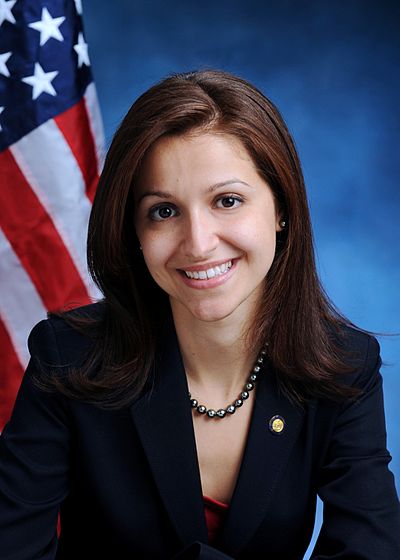Assemblymember Aravella Simotas (D-Astoria) announced today she is fighting sexual harassment with six bills that will enhance the ability of targets of harassment to seek justice and recompense and to speak out about their experiences.
The package of legislation will build up and strengthen the series of sexual harassment laws that were adopted in the 2018-2019 state budget.

“Countless high profile cases of misconduct and the resulting #MeToo movement have put a spotlight on the pervasive and persistent problem of sexual harassment. Fighting sexual harassment is a complex battle and my six bills tackle the scourge of confidentiality agreements, non-disclosure agreements, insufficient statutes of limitations and more,” said Simotas.
The six Simotas bills would do the following:
One bill would require that any party entering a confidentiality agreement first be given a written waiver explaining the full consequences of the agreement and the rights they would be surrendering. This would allow individuals who have been subjected to sexual harassment to make more informed choices in settlement negotiations. Under the proposed law, a confidentiality agreement would be void if it stopped a party from filing an official complaint, cooperating with an investigation, or filing for unemployment insurance or other public benefits.
“A confidentiality agreement can be a coercive restriction on an individuals’ legal rights and no one should ever be asked to sign one without full disclosure of what they are giving up if they do sign,” said Simotas.
A second bill would require that all employers inform their employees that non-disclosure or non-disparagement provisions in an employment contract cannot prevent them from speaking to law enforcement, the Equal Employment Opportunity Commission, the state Division of Human Rights or a local commission on human rights.
“This legislation would stop the misuse of non-disclosure agreements as a weapon to silence whistleblowers and targets of sexual harassment or other workplace wrongdoing,” Simotas said.
The third bill would extend the time to file a sexual harassment or discrimination complaint with the NYS Human Rights Division from one year to three years. This would mirror the statute of limitations in the NYC Human Rights Law. Additionally, this bill would help state and legislative employees by giving them up to 6 months to file notice of intention to sue for unlawful discrimination in the Court of Claims, an extension from the short limitation of 90 days in some circumstances. The bill would also stop the statute of limitations clock during the pendency of any investigation or administrative proceedings related to the alleged discriminatory practice.
“When the window of opportunity to file a sexual harassment claim slams shut before a person can even process what’s happened to them, let alone how to deal with it, that is justice denied and an additional form of abuse on top of what they’ve already experienced,” said Simotas.
The fourth bill mandates that all state employees complete annual bystander intervention training, an innovative approach to sexual harassment prevention that has been successfully implemented in the military and some college campuses. “By empowering state employees to intervene when they witness harassment or discrimination, we will be fostering safer and more supportive environments in state government,” said Simotas.
The fifth bill requires that all settlement agreements related to discrimination, sexual harassment or sexual assault be disclosed to the New York State Attorney General’s office, which will investigate any defendant that has entered into three or more such agreements.
The sixth bill provides that any confidentiality provision in a settlement agreement must be supported by separate compensation in addition to the damages for harm the complainant is rightfully entitled to. Requiring independent consideration will help create a more just settlement process and prevent perpetrators of sexual harassment from forcing their targets into silence.
“The Sexual Harassment Working Group has given me a broader perspective and a keener understanding of survivors’ needs, also welcome suggestions and input into these bills. I thank them and I applaud their activism,” Simotas added.
Simotas said that newly elected state Senator Alessandra Biaggi (D-Bronx, Westchester) has agreed to sponsor the bills in the Senate.
In announcing the package of bills, Simotas also thanked the Sexual Harassment Working Group, which consists of seven former New York State Legislature staffers, all of whom experienced, witnessed, or reported sexual harassment while working for the state.
“The Sexual Harassment Working Group has given me a broader perspective and a keener understanding of survivors’ needs, also welcome suggestions and input into these bills. I thank them and I applaud their activism,” Simotas added.
More information on the organization can be found on their website: https://www.harassmentfreealbany.com/.







